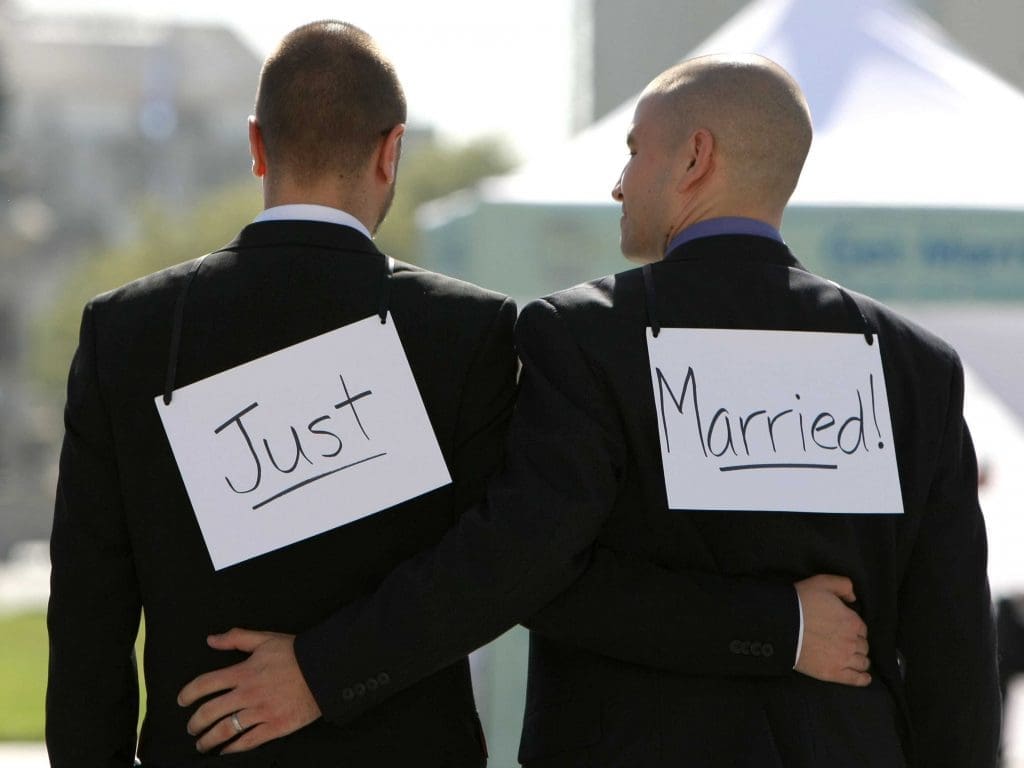
In July this year, Premier Mike Baird announced a ban on greyhound racing which would officially commence in July 2017. The Greyhound Racing Prohibition Bill 2016 passed in Parliament with 49 votes to 30 after it was found that approximately 68, 000 ‘uncompetitive’ dogs were put to death in the last decade and one in five trainers used live animal baits.
Whilst it was evident that not everybody was pleased by the decision, especially Opposition leader Luke Foley, Baird’s ‘backflip’ on the decision has created a new barrel of problems.
Foley has undoubtedly voiced a concern that many people are beginning to consider; who will have faith in the Government now? An argument can be made to suggest that Baird’s credibility will be questioned and his opinions as Premier, subject to change.
However, Baird has taken a different perspective on the issue by arguing that his decision to reverse the ban demonstrates his and the Government’s room for human error. Baird commented, “They will criticise me for getting it wrong, that’s human. I mean, I’m human. Surely no one is infallible, no Governments are infallible”.
Baird has refuted the claims that suggest he was listening to a vocal minority when making this decision. He has instead argued that the community was alarmed by the statistics but found that the industry should be allowed a second chance.
Despite his alleged ‘good’ intentions, this decision made a mockery of the Government and clearly spelt out the shortcomings of our politicians in power. The reversal has demonstrated to the public that their representatives can change legislation if enough pressure is placed upon them. Further, it has revealed that the Government was lax in their planning and strategy in regards to the Greyhound Racing Bill which has left a large majority of the public disappointed and confused.
Yes, Mr Baird, no one is infallible, but proclaiming to the world that the Australian Government is fallible does not leave a lot of room for public confidence, now does it?
If you have any questions about how the greyhound backflip will affect you, or wish to know more about how Legislation is enacted, please contact us on 02 8917 8700.

Depending on your person, there are a number of ways to show excitement. A smile, a cheer or even bringing out a cheeky bottle of champagne to toast a special moment. However, recent news has revealed that some believe these expressions of celebration and excitement too tame. After all, why sip on bubbly when you can drop your drawers and proudly display another country’s flag on the all-too Australian ‘Budgie Smugglers’?
A bold move in a conservative country.
Earlier this week, nine Australian men stripped down to their swimwear briefs and proudly displayed the image of the Malaysian flag at the Malaysian Grand Prix. Much to their surprise, their actions resulted in spending four nights in custody and standing before a magistrate in Sepang Magistrates Court.
The nine men pleaded guilty to charges of public nuisance but all of them were cautioned and discharged without a conviction. However, it is hard to imagine that any of them will forget the incident any time soon, as the Judge cautioned them, “Your conduct…was totally inappropriate…I hope that this incident will serve as a reminder to you and anybody travelling in this country to learn about our local culture and customs. What is acceptable in your country may not necessarily be accepted in this country”.
Before the decision was handed down, one of the nine men read out an apology to the people of Malaysia. The letter read,
“On behalf of my fellow countrymen who were arrested and detained by the Malaysian authority ... I apologise sincerely for our actions on the 2nd of October 2016 ... Which have offended the feeling and sentiments of the people of this beautiful country. We are remorseful of our actions on that day. We had no idea that our conduct would be deemed to be inappropriate, crass or even downright offensive to the citizens of this country. Please know that we do not have the slightest of intention to undermine or degrade the dignity of the Jalur Gemilang (flag), this country or her people”.
The lawyer acting for the group, Shafee Abdullah, made sure to impress upon the court that Australia is a place where it is not uncommon for people to strip down to their swimwear or wear the national flag as it is a sign of patriotism.
We can all learn something from this incident. Firstly, always remember to respect the culture of the country you are visiting because it is obvious that not everybody shares the same values and ‘inside’ jokes. Secondly, never wear Budgie Smugglers in public because those pictures will last a lifetime.
If you are facing a matter of public nuisance or simply wish to know more about the legal intricacies of this story, please do not hesitate to contact our offices on 02 8917 8700.

Every relationship has its milestones; that quirky first date, a whirlwind engagement, the wedding of your dreams. For many, the next step is to settle down and start a family, but for some this is not possible. When a couple is faced with the realty of being unable to have children, many place their hopes in surrogacy for a chance to be able to hold their child in their arms. However, this is not an easy feat and is an area fraught with legal problems. Surrogacy is heavily regulated in Australia, with each state having their own laws to govern the surrogacy relationship.
In New South Wales, this is governed by the Surrogacy Act 2010 (NSW) and you can enter into a surrogacy relationship regardless of your gender or relationship status, as long as you are unable to conceive or give birth or have a genetic defect that you risk passing on. The Act requires surrogacy relationship must be altruistic, which means that the birth mother must not gain financially from the arrangement, though she is entitled to be compensated for her expenses. The next step requires a pre-conception surrogacy arrangement, which allows the intended parents to apply for a parentage order, so that the child can legally be recognised as theirs. All parties have to undergo counselling, as well as seek independent legal advice before and after the birth. Failure to comply with surrogacy conditions may result in two years imprisonment.
The problem with surrogacy in Australia, is that there are very few women who are likely to enter into a surrogacy relationship due to the altruism requirement, which often leaves them feeling like they aren’t being properly compensated. This results in many Australian couples to seek a surrogate from overseas, which results in a baby born in a legal limbo. International surrogacy is illegal in NSW, and there are often many problems with establishing the parentage and citizenship of the child internationally. For example, in Thailand, the birth mother is considered the legal mother of the child and if she is married, her husband is the legal father. The child attains Thai citizenship, as per the legal status of the mother, and placing the biological father’s name on the birth certificate does not automatically guarantee him paternity rights or the right to custody. The legal status of the child varies from country to country, and there is no uniformity in surrogacy law, so the child may be left without citizenship or legal parents in countries where surrogates are not held to be the legal parents. Essentially, surrogacy is an area of law that requires a lot of reform and international cooperation, and navigating surrogacy law as it currently stands is a complex and difficult process.
If you or someone you know is considering entering into a surrogacy relationship or you wish to find out more about the legal aspects of surrogacy please do not hesitate to contact Freedman and Gopalan on 02 8917 8700.

This week, the world woke up to news that one of Hollywood's biggest power couples - Brangelina - had split, with Angelina filing for divorce from Brad.
When a couple separates, they are both swept up into a whirlwind of issues ranging from new living arrangements to questions of who gets custody of the children. No matter how amicable the situation may seem, divorce is hard on all parties involved. Brad and Angelina are about to discover just how difficult it can be whilst deflecting speculative questions and prying eyes.
Here are five pointers that might ensure the Brangelina split doesn’t get out of hand:
- Speak to an attorney
Ideally, it is best to consult legal advice before filing for a divorce as there are steps that can be taken to avoid drastic action. These steps include marriage counselling and family mediation but if divorce is imminent, speaking to a lawyer is advised. As a result, actions taken subsequent to filing for divorce will be legal and should assist to keep both parties well informed of the process.
- Consider the children
Try to remember that you and your partner are divorcing, not the children. Both Brad and Angelina were often quoted to say that their children are the best thing that has happened to them, but what will happen to them once the divorce proceedings commence? If this is a difficult time for you, imagine the toll it will take on the children. It is important to note that reforms to the Family Law Act have attempted to emphasise shared parenting responsibilities so it would be ill-advised to encourage the children not to speak to the other parent or deliberately sour the relationship between you and your partner.
- Take note of Furniture and Furnishings and Copy Documents
Brad and Angelina will certainly have a hard task of determining their asset pool, but for most of us, this pool will include bank accounts, debts, shares in a business, the matrimonial home, cars and even household furniture. It is important to determine these assets when the time comes to split up the property or when the Court becomes involved. Subsequently, any documents that can prove these assets such as bank statements, wills, car registration titles will be useful when dividing the property.
- Consider your own earning potential
If your divorce goes to the Family Court, it is necessary to be aware of your own earning potential as splitting up the property can be affected by you or your partner’s potential to earn money. In some cases, it is best to keep the matter out of court so that you and your partner can determine on your own who should keep what depending on individual circumstances.
- Consider alternatives to Court
In famous cases like that of Pitt and Jolie, going to court is expected. However, in ordinary circumstances, taking a divorce to court can be a significant financial and emotional burden on all parties involved. In most situations, both sides are at the mercy of the uncertainty of how a judge will rule. Therefore, alternative solutions should be considered. Rather than falling back on the belief that if all else fails, court is an option, the process of ‘collaborative divorce’ involves working with lawyers and additional experts to resolve the problem without going to trial. If both parties decide to go to court, they must acquire new lawyers. The greatest benefit of these processes is the autonomy it allows both you and your partner, as well as structuring a plan that will also suit the children.
If you are currently thinking about filing for divorce or wish to know more about the legalities surrounding the Brangelina split, do not hesitate to contact our offices on 02 8917 8700.

As the 2016 political year commenced, we have seen controversial debate sparked by the banning of the burkini, the introduction of a new iPhone and the arrival of Senator Pauline Hanson. As one of her party’s core policies, the One Nation Senator Pauline Hanson has made it very clear that the Family Court has to go.
This week, those feelings have been exacerbated in Hanson’s first speech in the upper house of Parliament as the words ‘unworkable’ and ‘discriminatory’ have been used to describe the Family Law system. She has proposed that a tribunal of ‘mainstream Australians’ replace the court to ensure there is a body which can sustain the unbearable workload.
Amongst her claims, Hanson condemns the system on the basis that men are unfavourably looked upon and victims of family violence are disadvantaged in court proceedings by common practices. This includes the allowance for self-represented litigants (often the accused) to cross-examine their alleged victim.
Moving past Hanson’s unfounded comment regarding female favouritism, there are grounds for annoyance concerning the court’s workload and current lack of support. Justice Bryant has publicly asked for an increase in government funding to ensure there are better risk assessment tools for family consultants and expanded domestic awareness training.
Justice Bryant has publicly disagreed with Hanson’s views in stating that the abolition of the Family Law Courts would not only be unconstitutional but a brash response for an issue that deserves more expertise as opposed to less.
Realistically, it is inappropriate that the wait time for trial is approximately two years and cross-examination by an alleged abuser is allowed to occur. However, abolishing the system is not the answer. Family law has already seen significant reform and will continue to improve with greater funding as a result of increased research on key areas of focus such as family violence.
If you have a family law matter that you want to discuss, or are currently going through the Family Court, contact us on 02 8917 8700 to discuss your matter further.
Marriage has often been jokingly referred to as ‘the old ball and chain’. However what happens when the marriage you enter into is inflicted on you without your consent?
Everyday around the world millions of girls are being forced into marriages against their will. They are threatened, coerced and deceived into situations that may be likened to a form of modern day slavery. Forced marriage occurs when an individual is entered into a marriage without their full and free consent. The consequences of forced marriages are devastating; with physical abuse, sexual assault and family violence a horrifying everyday reality. Victims often find it difficult to leave abusive situations due to immense familial pressure and social stigma associated with divorce or separation. In addition, in communities where there is a higher incidence of forced marriage, there is often a lack of education or access to protective agencies which results in the creation of a vicious cycle.
So what is being done about it?
Forced marriage is a crime under Australian law. Under s.270-7B of the Commonwealth Criminal Code, forced marriage is a criminal offence which carries a four year jail term. This is upgraded to 7 years if aggravated. These amendments were introduced to combat the rising incidences of forced marriage and human trafficking in Australia. However, in reality the success has been limited. This is because the victim is often unwilling to partake in the prosecution of their own family members.
In responding to this sensitive situation, it may be worthwhile examining the UK’s Forced Marriage Unit (FMU) in order to formulate a more effective way to assist the situation in Australia. The FMU provides a telephone helpline that provides advice and assistance to victims. This encompasses the entire scope of the situation, including:
- providing safety advice;
- preventing unwanted sponsorships; and
- in extreme cases, rescuing victims that are held against their will overseas.
The importance of a helpline service, as opposed to criminal prosecution through police intervention is in providing a service to monitor the situation.
A Forced Marriage Order can be granted if there is a risk of forced marriage. There is a criminal penalty of 5 years imprisonment if the orders are not complied with. The benefit of this order is that it is preventative as opposed to the punitive measure as enacted by Australian legislation, and this better reflects an understanding of the delicate family situation faced by victims of forced marriage. The adoption of a similar service in Australia may be a right step in the direction of preventing forced marriages.
In the event that you are already in a forced marriage, Australian law has measures that can help you restore your freedom. Under Section 23(1) of the Marriage Act 1961 (Cth), a marriage will be annulled or declared void by the Family Court if it was found that the marriage occurred as a result of:
- force,
- duress,
- fraud; or
- if one party did not have the mental capacity to consent to the marriage.
This means that if you were forced into a marriage against your will, then you can seek to have your marriage declared invalid under Australian Law.
Although Australia has made progress in addressing the issue of forced marriage, there is still a long way to go.
If you are in a forced marriage or have concerns about the welfare and safety of a friend or family member, please do not hesitate to contact Freedman & Gopalan Solicitors on 02 8917 8700.
‘Why did you buy that for?’ A seemingly innocent enough question, but once you look behind the surface an entire world of control and coercion emerges. Financial abuse is tactic by which abusers seek to gain control over a relationship by controlling a partners finances in order to regulate their behaviour and prevent them from leaving. In an article released by the National Network to End Domestic Violence it has been articulated that financial abuse occurs in 98% of abusive relationships and surveys of domestic abuse survivors indicate that the fear of an inability to provide for themselves and their families was one of the top reasons for staying in an abusive relationship (link). All over the country millions of women are being financially abused, yet it remains one of the least recognised and understood forms of abuse.
So how do you know if you’re being financially abused?
- Does your partner prevent you from working or control your salary?
- Do you have no decision about how money is spent in your relationship?
- Does your partner withhold money from you or only allow you an ‘allowance’?
- Does your partner prevent you from seeing or being included on financial statements?
- Does your partner threaten you or make you feel guilty when you want to make purchases?
- Does your partner hide assets from you or not inform you of major financial decisions like taking a loan?
- Do you feel like your powerless, like you’re dependant on your partner for food, clothing and shelter?
- Does your partner force you to do things you don’t want to do in return for access to money?
Financial abuse has very real consequences and may result in feelings of helplessness, a complete loss of autonomy and leave you feeling forced to stay in a situation you know is bad for you. It also has significant monetary implications and victims of financial abuse are often left in situations where they have no means to support themselves and this may result in bad credit scores, an inability to seek loans, loss of employment opportunities and homelessness. If these signs signal a red flag in your relationship, it may be time for you to recognise that this is not okay and you can find the help you need to escape this vicious cycle of abuse.
If you are in a similar situation or wish to know more about financial abuse, please do not hesitate to contact our offices on 02 8917 8700.

Greyhound racing has its origins in coursing, a popular past time of the 1800s when dogs were used to hunt food and eliminate pests. From this, modern greyhound racing began in Australia in 1927 with the commencement of the Gaming and Betting Act which allowed legal wagering.
This racing became very popular with the working class as the entry fares and ability to place bets was not as high as it was with horse racing. However, even at this point in time, racing dogs created opposition from those of a more conservative background.
Late last month, the Australian Government passed the Greyhound Racing Prohibition Bill 2016 in parliament. This legislative action has signalled a drastic turning point in the history of animal welfare as it will include a one-year jail sentence and maximum $11, 000 fine for anyone caught organising a race after the ban.
Propelled by a Special Commission of Inquiry into the Greyhound racing industry discovered that approximately 68, 000 ‘uncompetitive’ greyhounds were put to death in the last decade and one in five trainers were believed to have used live animal baits.
Not everyone is happy.
Opposition leader, Luke Foley, has argued that Premier Mike Baird has conducted an “unprecedented government intervention into people’s lives” as this disservice will interrupt the lives of many good men and women involved in the Greyhound racing industry.
According to the Greyhound industry, the community is devastated by the decision and the political ‘stunt’ will financially ruin hundreds of people who have dedicated their lives to the industry.
Whilst some are holding out in the hope that a legal challenge will be upheld, the parliament passed the bill 49 votes to 30, indicating the popularity of the decision.
It is important to note, despite what the opposition leader has argued, there are limits to what the Government can legislate on. This rule lies in section 61 of the Constitution which states,
‘The executive power of the Commonwealth is vested in the Queen and is exercisable by the Governor-General as the Queen's representative, and extends to the execution and maintenance of this Constitution, and of the laws of the Commonwealth.’
However, the Courts are aware that this section is shaped by contrasting considerations. The Government must be allowed the discretionary tools and power to administer the States, but cannot be allowed open-ended power that could lead to arbitrary decisions.
One of the key purposes for our separation of powers doctrine is to ensure the relevant checks and balances are in place to ensure this balance is not tipped one way or the other. If the Government is found to have over-stepped their mark in regards to the Greyhound racing ban, it will be settled in Court as an example of these checks and balances.
So who has won? Unfortunately, the race is not over yet.
If you are involved in the Greyhound industry or wish to know more about the recent changes to legislation, please contact our offices on 02 8917 8700.
There has been mounting political contention regarding the introduction of a plebiscite for same-sex marriage. So that begs the question, what is a plebiscite and how does it affect you?
A plebiscite is a national vote that’s used to gauge public support for a legislative proposal. It’s important to remember, however, that a plebiscite unlike a referendum is not binding. So you may be asking, why not have a referendum? The answer to that falls upon a 2013 High Court decision which found that the federal Parliament has the authority to make laws with respect to ‘marriage’ as granted by Section 51(xxi) of the Constitution. This would potentially include within its definitions same-sex marriage.
Now to the facts, what would a plebiscite mean for same-sex marriage?
A plebiscite has generally been regarded to be an inhibitor rather than a proponent for same-sex rights. The fact that it is non-compulsory would mean that only politically motivated individuals would be likely to vote and this would not provide an accurate representation of the opinion of the Australian public as a whole. Furthermore, they are non-binding. There have also been significant concerns regarding the potential for a campaign of hate, should a plebiscite come to pass. This is because there are no strict regulations governing a plebiscite like there are for referendums and elections.
A plebiscite has very real consequence on the welfare of the LGBTI community. In a fact sheet released by Australian Marriage Equality.Org, there is research to suggest that a "[it] detrimentally effects the mental health of lesbian, gay, bisexual, transsexual and intersex people".
Despite the potential detriment afforded to the LGBTI community, it has been said that there is support for the marriage equality plebiscite in the community. However, this is not echoed in public opinion polls. In a poll commissioned Parents and Friends of Lesbians and Gays (PFLAG), when voters were informed that the plebiscite is non-binding, support was only 33%. When voters were further informed that the process would cost tax payers $160 million, the support dropped to 25%. This poll stands testament to the fact that a same-sex marriage plebiscite may not be the best foot forward on the road to marriage equality.
Statistics from The Guardian.
If you have concerns about your same-sex relationship, contact us on 02 8917 8700 to discuss your options.



